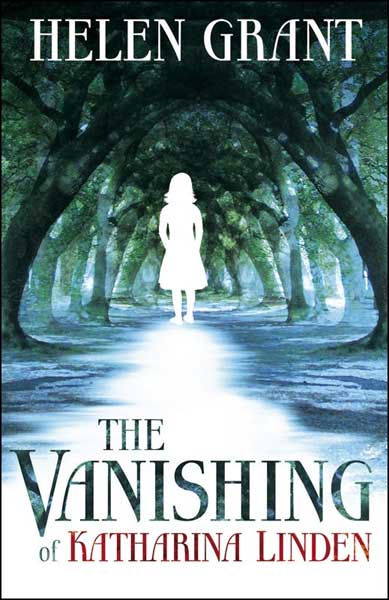Best teenage fiction of 2009: Abduction, deceit, dead bodies. This isn't kids' stuff

To begin, a couple of debuts. It's rare to find a first novel as assured as Helen Grant's The Vanishing of Katharina Linden (Puffin, £6.99). Set in the small German town of Bad Münstereifel, it begins with the disappearance of a 10-year-old local girl, which sets the whole town on edge. Told by a half-English, half-German girl, Pia, who takes it upon herself to investigate, it is a perfectly plotted thriller from its great opening sentence to its hurtling conclusion. Lucy Christopher's Stolen (Chicken House, £6.99) is another nail-biter. This time, our narrator is Gemma, a teenager kidnapped from an airport and taken to a nowhere place in the Australian Outback. Tautly written and hard to put down, Stolen asks some troubling questions, too. Gemma's kidnapper is charismatic; this book is her letter to him and it makes for sometimes uncomfortable reading. Gripping, but definitely not for younger readers.
Judy Blundell is no debut author (she has written dozens of Star Wars novels under the name Jude Watson), though What I Saw and How I Lied (Scholastic, £6.99) is the first book to appear under her own name. It introduces us to 15-year-old Evie, who travels south to Florida with her mother and stepfather for a vacation. It's a trip that will begin like a dream, with Evie falling in love, but will soon unravel into a nightmare of deception, betrayal, mistrust, and worse. Beautifully written and paced, What I Saw is a dark, captivating tale.
Marcus Sedgwick's Revolver (Orion, £9.99) is a little wonder of a book – slight but immensely rewarding. It's the story of Sig, who lives in the Arctic Circle, and begins with his discovery of his father's dead body. Sedgwick is a superb writer and this book – his best to date – is precise, controlled and devastatingly effective. It is impossible not to be drawn into Sedgwick's most hostile of worlds: a landscape that is vast and empty, yet claustrophobic, icy cold, conjured in writing that burns.
From the frozen Arctic wastes to Camden Town, where Sam has arrived seeking the anonymity he thinks London can offer him. Jenny Valentine's The Ant Colony (HarperCollins, £6.99) creates a pleasingly odd community of curiosities with whom Sam finds himself sharing a house, trying to keep himself to himself but discovering that even in a big city, people cannot help being drawn into one another's stories. Warm, moving, heartening – but never saccharine – Valentine's latest is a delight. But Sam's oddball friends are as nothing compared to the characters you'll meet in John Harris Dunning and Nikhil Singh's wild Salem Brownstone: All Along the Watchtowers (Walker, £15, below). Graphic novels don't come much more gorgeously strange and stylish than this. When his father dies, Salem is caught up in a struggle involving a band of circus performers, malicious shadows and battles on the astral plane. The Beardsley-ish pictures are stunning, filled with detail and wonderful invention (a giant ectoplasmic serpent digesting two tigers, anyone?), and might give you quite peculiar dreams.
The early years of the Second World War provide the backdrop to two of my choices, one set in Germany and one in England. Paul Dowswell's Ausländer (Bloomsbury, £10.99) tells the story of Piotr, a Polish orphan saved by his Aryan good looks when a distinguished couple in Berlin decide to adopt him. Well constructed, morally complex and consistently engaging, this examination of a people's complicity with evil is revealing and important. In England, meanwhile, Julie Hearn's hero Rowan has just been diagnosed schizophrenic and is sent to an asylum for experimental treatments. Rowan the Strange (Oxford, £10.99) is a rich, odd, brave book about tough subjects, populated by characters you cannot but warm to (and feel bereft to leave behind when the time comes). Hearn resists any easy answers, creating a world of victims without obvious villains. It's powerful, thought-provoking stuff.
Finally, no one who read Patrick Ness's brilliant The Knife of Never Letting Go, with its thrilling imagination and maddening cliff-hanger ending, will need any prompting to devour its sequel, The Ask and the Answer (Walker, £7.99), in which our protagonists find themselves caught up in a struggle for their own survival. It is every bit as ambitious as the first book but the ambition is easily matched by the execution, with powerful prose and tight plotting that pull the reader along at terrifying speed. But a warning: the final part of Ness's Chaos Walking trilogy, Monsters of Men, is not out until May, so you read this one at your peril – the five-month wait won't be easy.
Subscribe to Independent Premium to bookmark this article
Want to bookmark your favourite articles and stories to read or reference later? Start your Independent Premium subscription today.

Join our commenting forum
Join thought-provoking conversations, follow other Independent readers and see their replies